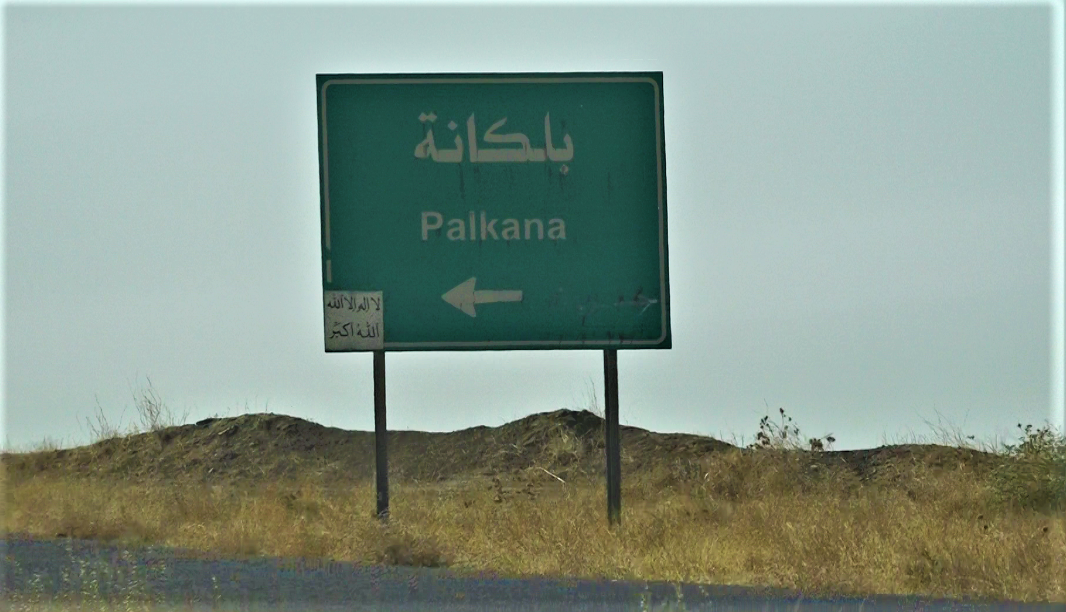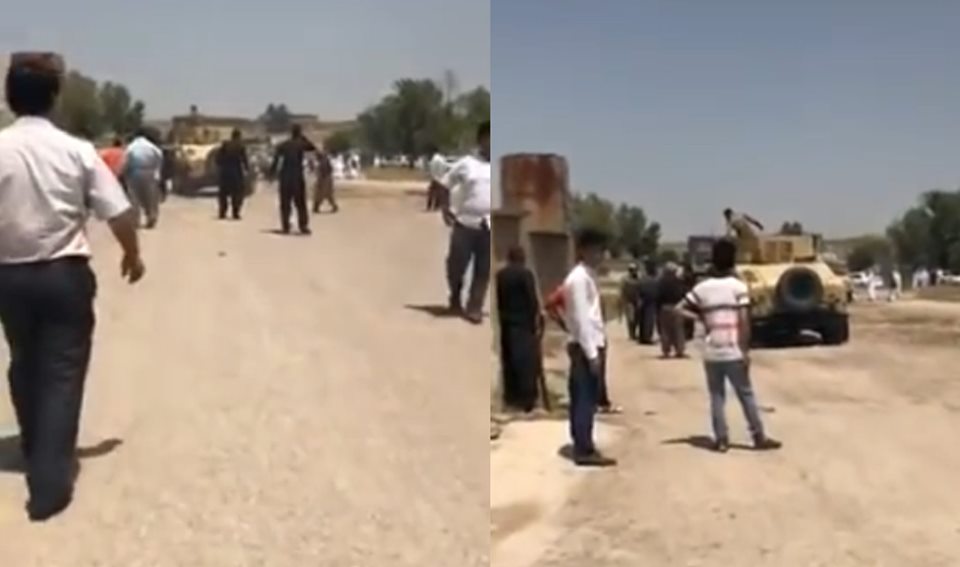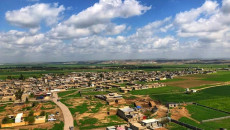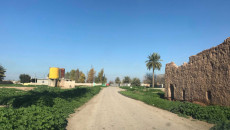For three years, the village of Palkana has been among the places where tension and conflict between Kurds and Arabs keep resurfacing, while the Erbil and Baghdad governments fail to resolve the issue.
After the events of 16 October 2017 (when Federal Forces took over the disputed areas from Peshmerga Forces after KRG held an independence referandum), conflict has risen between Kurds and Arabs over land ownership at Palkana village in Kirkuk Province.
“We have official documents from the court, the Agriculture [Department] and others. We have inherited those lands from our ancestors. But those Kurdish families who reside in the village don’t have any documents,” said Ahmad Ghazal, one of the chiefs of the Shammar clan.

A number of the Shammar chiefs gathered yesterday (15 September 2020) at the Rafideen village near Dibis, some 20 kilometres away from Palkana, and demanded to be allowed to return to Palkana and reatake land and homes they claimed as theirs.
According to the chiefs, they gathered at the Rafideen village instead of the Palkana village because security forces do not allow the press to enter Palkana.
Ahmad Ghazal told KirkukNow: “Our complaints are directed at the members of Parliament; they were elected thanks to us, and now none of them pay attention to our problems.”
Belkana and several other villages in Sargaran subdistrict in Dibis District, northwest of Kirkuk Province, have witnessed disputes between residents over ownership of land on more than 10 occasions. The Kurds say there is an attempt to expel them under pressure.
Yusif Muhammad Ali, Palkana’s commissioner, told KirkukNow: “In 1975, the Ba’th regime forcibly evacuated 12 villages in Sargaran, our village among them. They then brought Arabs to settle in our place. After 2003 [when the Saddam regime fell], we came back.”
Most agricultural lands in the area owned by Kurds were distributed in the late 1970s to Arabs coming from central and southern Iraq in the form of contracts, as part of the Arabization campaigns and the forced displacement of Kurdish families, but the Kurdish farmers returned to their lands again in 2003 after the fall of the Ba’th regime.
Arab tribes have tried to resettle in the village 12 times
“After the liberation process, we came back and restarted our lives; we have been busy rebuilding. But after 16 October [2017], the Arabs came back again for us with the assitance of the security forces,” added Yusif Muhammad, who says that the Arab tribes have tried to resettle in the village 12 times.

The last conflict in Palkana took place several days ago, but before clashes occurred, the situation was settled.
Palkana is one of the 42 villages in Kirkuk’s Sargaran subdistrict. There are currently about 25 families living in the village. It has more than 6 hectares of agricultural lands.
We are the original residents of the village
Hameed Haleel Farhan, one of the Arab villagers who wants to resettle in Palkana, said: “We are the original residents of the village; the Kurds who remain there are partly from Hasaka [in Syria] and part from Mahabad [in Iran], and a few families from Duhok.”
In March 2019, the Interim Governor of Kirkuk Rakan Saeed, said during a press conference: “The current residents of Palkana are from Iran’s Mahabad.” He expressed support for the resettling of the Arab tribes in the village.
Hameed Haleel told KirkukNow: “We don’t come from elsewhere; we are registered in the 1957 census. My father’s ID card is from 1928 and Sargaran is written on it. We ask for our rights. We have legal documents, but the security forces prevent us [from going back to Palkana].”
Documents made public by the Office for the Implementation of Article 140 of the Iraqi Constitution, several Arab tribes in the 1980s expressed their willingness to live in the place of Kurdish families in the Sargaran District at the request of the Iraqi government at the time headed by Saddam Hussein.
In November 2017, Kirkuk’s Interim Governor Rakan Saeed sent documents (which KirkukNow had obtained copies of) to the mayor of Dibis and Salahuddin Operation Command, requesting them to help Arab villagers to resettle in Palkana and other villages in Sargaran.
This is our ancestral land, we will not allow for Arabs to take it over
Hunar Kareem Rahman, one of Palkana’s residents, told KirkukNow: “This is our ancestral land, we will not allow for Arabs to take it over. […] If the Kurdish leadership has sold us out, let them make it clear to us.”
Hunar says that so far six Arab families have settled in the village with the help of the security forces.
Palkana falls under Kirkuk Province Administration, but currently its security is under the Salahuddin Operations Command.
KirkukNow has tried to contact a number of officials several times, but no one was willing to talk on the issue.
In May 2019, tensions rose in Palkana after more than 100 people belonging to the Shammar tribe went to the village. But local officials, MPs and high officials calmed the situation.
At the time, the interim mayor of Sargaran said during a press conference that the ownership of agricultural lands has been temporarily resolved until the issue is resolved in court.
Resolving the issue of the dispute over agricultural land ownership in disputed areas, falls within the framework of Article 140 of the Iraqi constitution, which was meant to determine whether Kirkuk and other areas should fall under the administration of the Federal Iraqi government or the Kurdistan Regional Government, according to mechanisms that include “normalization and census” and to “determine the will of the resident” with “a referendum in Kirkuk and other disputed territories.”






